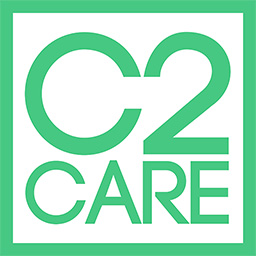Psychological injuries
Have you ever wondered why you keep making the same mistakes or why you surround yourself with people who make you suffer? According to Lise Bourbeau, a personal development specialist, there are 5 psychological injuries also called <“wounds of the soul”. These are the wounds that will cause physical, emotional and mental problems. According to this author, it is these wounds that will prevent us from being ourselves.
Emotional wounds are formed during our childhood before the age of 10. Most of the time, these wounds emerge from parents or parental figures, and are done without their will.

What are the 5 emotional wounds?
The 5 psychological injuries identified are:
- Rejection
- Abandonment
- Humiliation
- Betrayal
- Injustice
Most of the time, one injury will dominate the others, but it may be associated with other psychological injuries. We all develop certain wounds, which will have a greater or lesser impact on our lives.
Faced with this “aggression”, we unconsciously put on “masks”. These masks are defence strategies that are automatically put in place and that prevent us from being ourselves, from behaving as we would like to.
Thus, in order to no longer be limited by these masks, it is necessary to identify our wounds and to accept them.
How can we recognise these injuries?
Here is a more detailed description of the different psychological injuries:
Rejection :
The rejection wound is formed between conception and the age of 1 year. The child will feel rejected, unwanted, not having the right to exist, by the same-sex parent.
The mask used in the rejection is the mask of the shirker. It is a child who is rather wise, who will try to blend in. Children will regularly appear to be in “their world” and will try to escape reality by immersing themselves in other worlds (video games, books, drugs, alcohol, etc.). Adults are often perfectionists in order to avoid rejection and will ask for little help. They will tend to devalue themselves regularly, while being afraid of being judged by others.
The main fear of the elusive person will be panic. Knowing that they will not feel good in different situations, they will try to avoid them as much as possible in order to avoid being confronted with them.
The psychological need of the person with a rejection wound is the need to belong.
Physically, the people have a body that goes unnoticed too. They are relatively thin, small and withdrawn people.
Abandonment :
This wound is formed between birth and 3 years with the parent of the opposite sex. The wound is triggered by the absence of the parent of the opposite sex (absent, distant death…). It is therefore not a feeling of rejection but a feeling of neglect.
The mask used in the context of abandonment is the mask of dependence. This is a person who will need constant attention. Often a victim, this is a person who will tend to dramatise everything and want to draw attention to himself. Cries easily and has strong states of sadness. Addicts are very afraid of loneliness and will do everything to avoid it.
In the context of the abandonment wound, people will have a strong need for love. Love can be the love of others or the love of oneself.
Physical characteristics of addicts: Tall people, long and floppy arms, lack of tone, sad look.
Humiliation :
This psychological injury develops between the ages of 1 and 3 years. These are children who have felt restricted in their needs, their physical pleasures (often done by the mother). For example, children who have been severely restricted in their eating.
In the context of humiliation, it is the mask of the masochist that develops. The masochist is a person who will not listen to themselves or their needs. They will put the needs of others before their own needs to the point of forgetting themselves and sacrificing themselves for others. Masochists will even feel almost guilty when they feel happy.
Their greatest fear is freedom: People are afraid of going overboard if they find themselves with too much freedom, so they will put limits on themselves.
Physical characteristics of people with the masochistic mask: They are often people who have a large body, a round face, round eyes…
People suffering mainly from humiliation wounds need respect. Just like love, respect requires respecting others, but also respecting oneself.
Betrayal :
Develops between the ages of 2 and 4 with the parent of the opposite sex. Wakes up when the child feels betrayed, manipulated by the parent.
The wound of betrayal will bring on the mask of the controller. The controller is a manipulative person who needs to control what happens around him/her. They are seductive and place a lot of importance on the material side or image. Controllers will have a strong personality, with a hyperactive mind and impulsiveness.
Controllers will be afraid of both commitment and disengagement.
Characteristics of people with a controlling mask: Women will tend to have wide, strong hips with a bulging belly. While men will have more developed shoulders than hips.
In the context of the betrayal wound, people will have a strong need for confidence. This need can be fulfilled by self-confidence and trust in others.
Injustice :
The wound is awakened between the ages of 4 and 6. This wound is formed with the parent of the same sex who will be perceived by the child as being distant, cold and rigid.
The wound of injustice will cause the mask of the rigid to emerge. These are people who will appear emotionless, insensitive. They will tend to hide their emotions with forced laughter. In permanent control, these are people who will tend to organise everything in their lives. They appear dynamic and positive, never having any particular problems.
The main fear of rigid people is coldness. They will find it very difficult to accept the coldness of others or their own.
Physical characteristics: These are people who will have a rigid body, as perfect as possible. Well-proportioned, they will do everything to keep this body and not gain weight.
Just like the other injuries, the injustice will have to fill a need. For the latter, it is a need for recognition that must take place.
How do you heal from your wounds?
As you may have understood, our psychological injuries will push us to reproduce the same patterns and situations that hurt us.
Among the steps to begin the “healing” of wounds, in the first instance it is important to accept. Accept that you can be hurt, and this acceptance includes observation. Observation of how we feel, observation of our spontaneous reactions when we feel hurt.
Another step is to accept the fact that others also have wounds. We all have them. Depending on the person, some wounds will take precedence over others, but they are there. It is therefore interesting to remember that others, too, may have reactions related to their wounds. Take the time to observe others, to identify their wounds in order to better understand them.
Once you have made all these observations and acceptances, identify the moments when your fears take over, try to modify them to make them more adapted to your environment, to your loved ones. Also take the time to explain your fears and the reasons for some of your reactions to your loved ones.
To heal, the process will be different depending on the wound present.
The wound of rejection: healing will involve accepting confrontation, no longer running away from situations where there is a risk of rejection.
The wound of abandonment: Healing will come from the fact of becoming autonomous, of feeling good even when alone. For this it is also interesting to work on self-confidence.
The wound of humiliation: Healing will come from accepting to put one’s needs before wanting to help others. Improve self-esteem to stop the constant devaluation.
The wound of betrayal: Healing will involve learning to let go, accepting that you cannot control everything.
The wound related to injustice: It is important to learn to reconnect to your emotions, your needs, while accepting that everything is not “perfect” and to make mistakes.
Becoming aware of your own wounds, accepting them and changing them may require outside help. Do not hesitate to seek the help of a psychologist, who will help you in these different steps and accompany you along the way. Today, there are many therapies available and they can be brief. Within the framework of these therapies, in particular cognitive and behavioural therapies, you will learn to manage your emotions, in order to respond in an adapted way to the different events.


